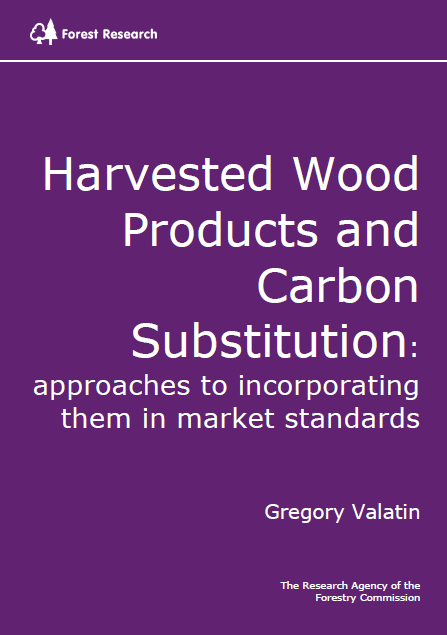Summary

Summary
This project reviews approaches to accounting for carbon storage and carbon substitution benefits of harvested wood products under existing carbon market standards.
Research objectives
- Review methods used to account for i) carbon storage in wood products; ii) carbon displacement benefits of substituting wood for more fossil carbon intensive materials such as concrete and steel, and iii) woodfuel use instead of fossil fuels;
- Consider potential for extending the UK Woodland Carbon Code;
- Identify research gaps.
Results
The review of accounting for carbon storage benefits of wood found:
- Approaches to determining baseline emissions (the assumed trajectory of emissions in the absence of a project) vary, being based variously on legal requirements, historical records, common practice, or economic optimisation.
- A 100-year time horizon is used. Wood products with a longer life-span are assumed to store carbon permanently. Those with a shorter life-span are assumed either to release the carbon stored immediately, or over a fixed period (e.g. 20 years).
- The project developer – generally the forest owner, receives the carbon credits
- Carbon substitution benefits are not covered under existing forest project protocols.
The review of renewable energy project protocols covering woodfuel found:
- Forests are seldom taken into consideration.
- Estimated greenhouse gas savings are based upon ‘emissions factors’, representing emissions per unit of input and their basis differs between protocols.
- The renewable energy project developer – generally not the forest owner, receives the carbon credits.
- None of the protocols account for rebound effects.
Status
Started 2014; completed in 2021.
Funders and partners
FC funded (formerly under the REVES programme and Programme 4).
Forestry Commission policy
The Woodland Carbon Code, a voluntary standard developed by the Forestry Commission in partnership with other organisations, aims to ensure that claims made by the project developers about carbon sequestration are robust. It does not currently extend to carbon storage in wood products, or carbon substitution.

